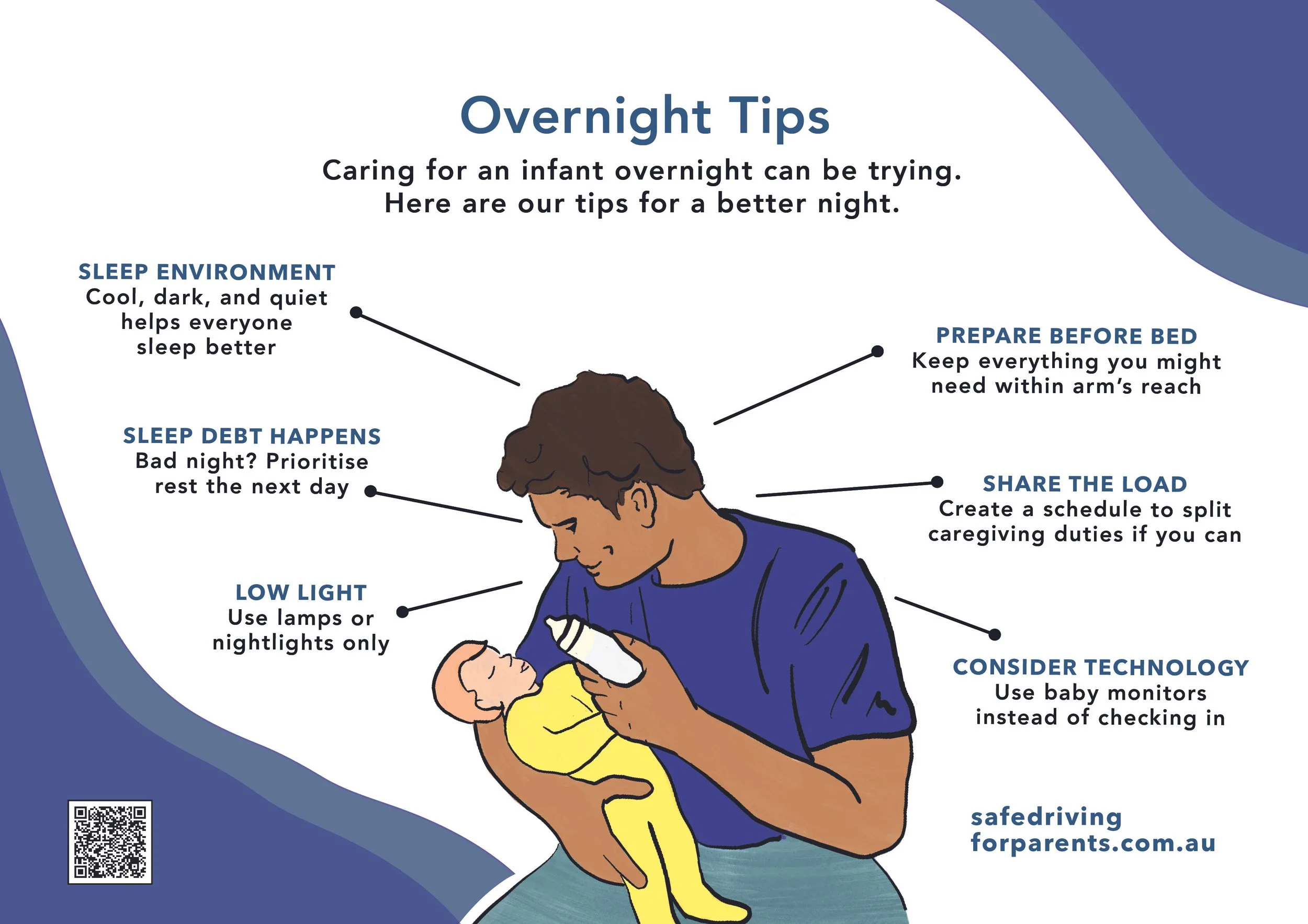
How Can You Reduce the Risk of Fatigue While Driving?
SAVE | SHARE | DOWNLOAD
Use this infographic as an ‘in your pocket’ reminder and guide. You can easily save this directly to your phone or click to down a jpeg/pdf.
Science Backed Tips
Whether you're juggling late-night feeds, toddler tantrums, or school runs, it’s easy to underestimate how tired you really are.
How Can You Reduce the Risk of Fatigue While Driving?
Aim to avoid driving if you are fatigued.
Only sleep cures fatigue.
Stop driving if you are feeling fatigued.
Avoid driving at night and very early in the morning.
Avoid driving after taking medication that may impact sleep or alertness.
Don’t drive for longer than 2 hours at a time without a break of at least 15 minutes.
Consider alternative transportation if you are feeling fatigued (e.g., public transportation, taxi where possible, asking family/friends to help).
Share the driving. You may decide on who is going to drive by identifying who is feeling most alert and had more sleep the previous night.
Look out for the signs of fatigue (yawning, being easily distracted, heavy eyes).
Short breaks where you do some light physical activity can be useful (e.g., walk around the car, star jumps).
Ensure your car’s safety features are turned on (e.g., fatigue detection technology, lane keeping, adaptive cruise control, etc.), but do not rely on them.
Have a nap prior to driving – but beware of sleep inertia (the groggy feeling you get when you wake up). Give yourself at least half an hour to wake up properly before driving.
Manage distractions. It can be very distracting to drive with children in the vehicle, particularly when you are fatigued.
Consider planning activities for your child or children to do while you drive (e.g., books, toys).
Consider tiring your child or children out before long drives (e.g., visiting a playground or play café).
Use caffeine wisely – it can increase alertness and temporarily mask fatigue but doesn’t resolve it. Caffeine can also make it harder to get to sleep later, so consider avoiding it in the hours before you plan to sleep.
Stay hydrated.
Have a healthy, balanced snack before your drive.
Some good options include:
1) tuna, vita-weats, avocado
2) rice cakes, avocado, chicken slices, lettuce, and tomato
3) popcorn and hard boiled eggs
4) cheese and crackers
5) veggie sticks, hummus, and cottage cheese
6) protein bars
7) granola, yoghurt and fruit
VIEW OTHER RESOURCES
Use these infographic as an ‘in your pocket’ reminder and guide.
You can easily save the images directly to your phone or download them from each resource page.






